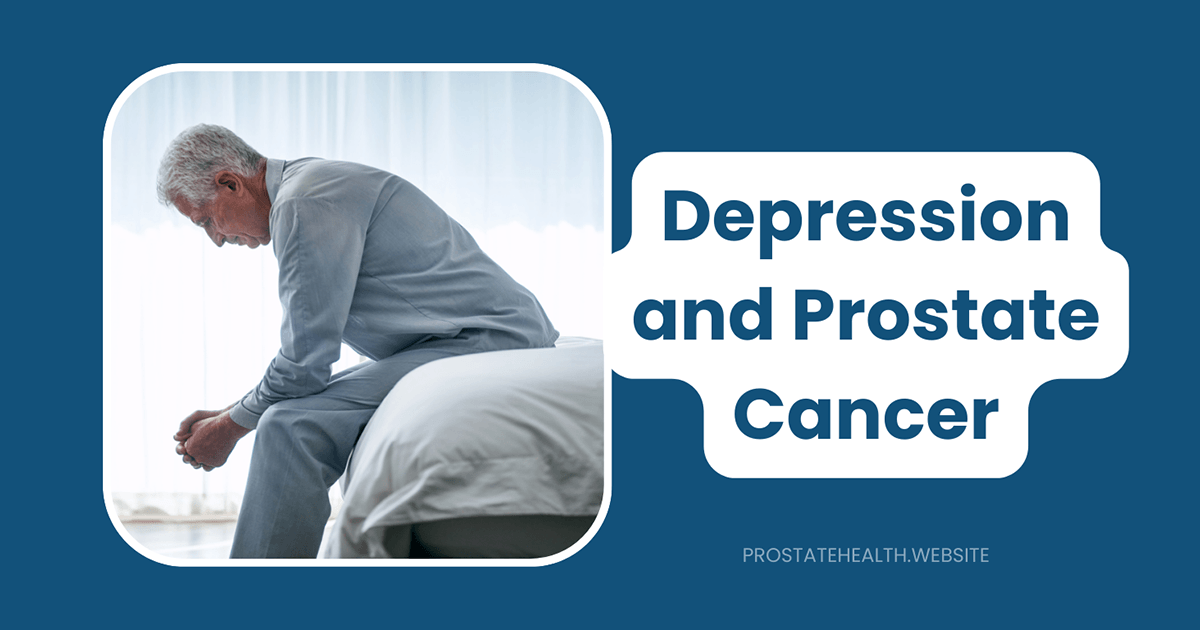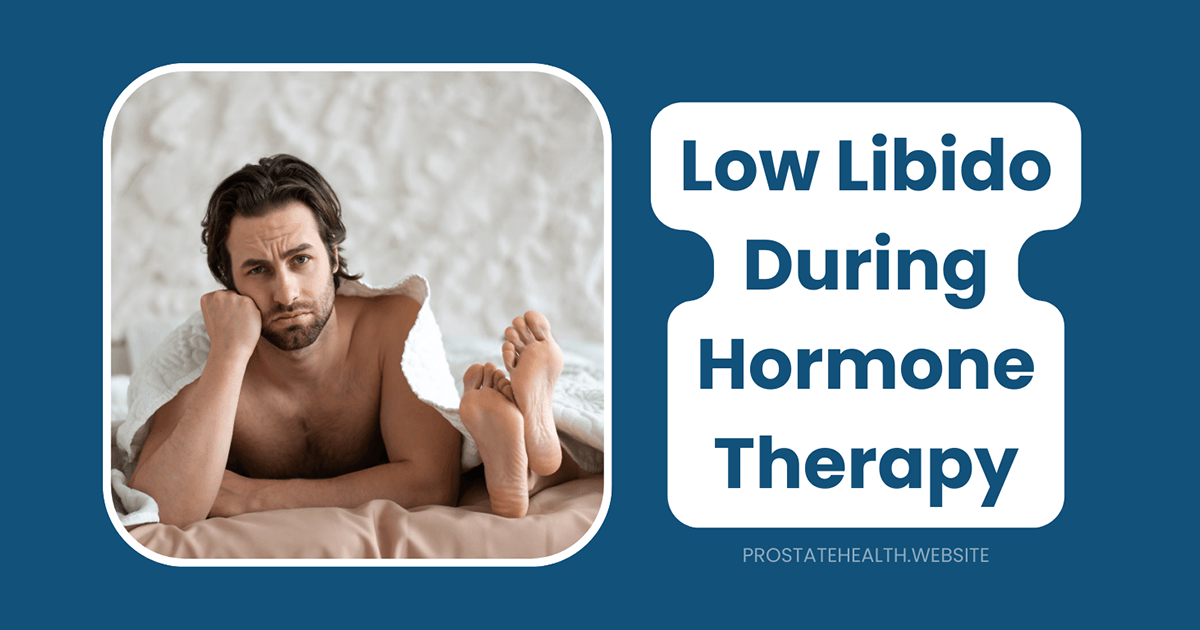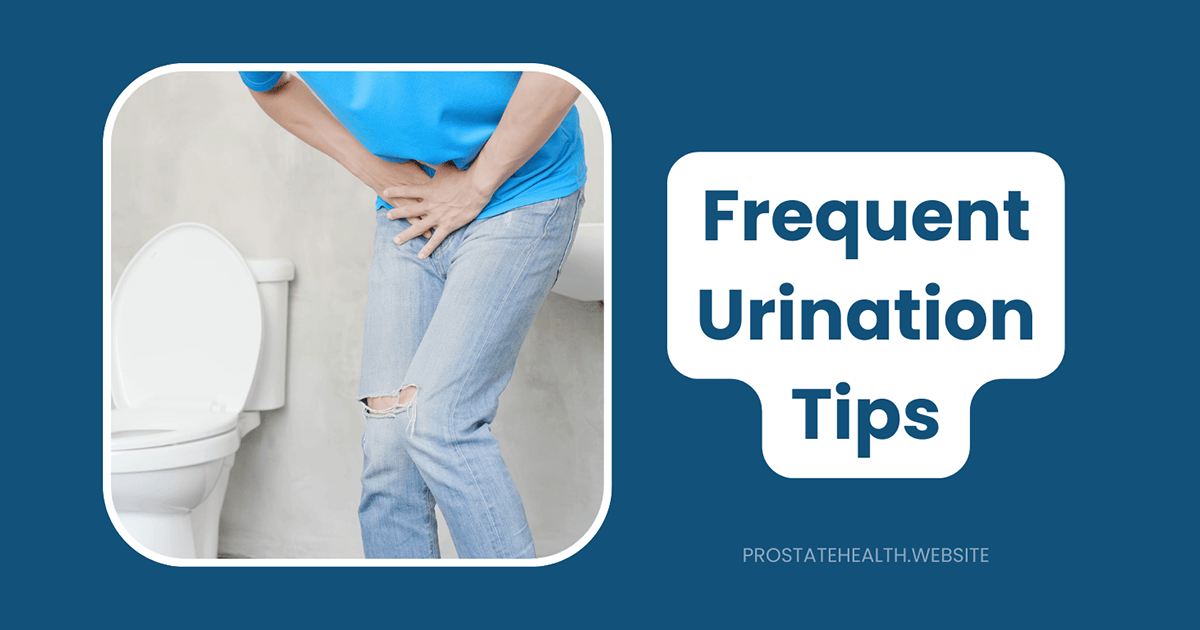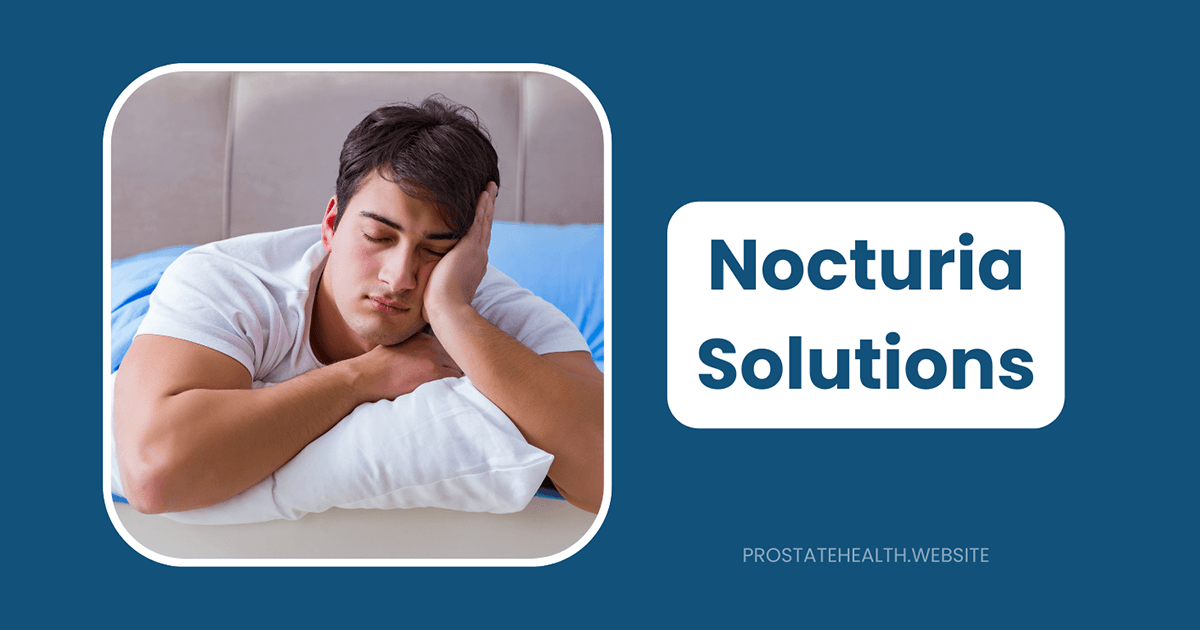Depression and Prostate Cancer: Recognizing and Addressing Symptoms

When discussing prostate cancer, conversations typically focus on treatment options, survival rates, and physical side effects. Yet beneath these medical considerations lies a significant but often overlooked challenge: depression. As someone who has spent years advocating for comprehensive prostate cancer care, I’ve seen firsthand how emotional well-being can profoundly impact a patient’s journey and outcomes.
Depression affects approximately 15-20% of men with prostate cancer—a rate significantly higher than the general male population. More concerning is that depression often goes unrecognized and untreated, potentially compromising both quality of life and cancer outcomes.
In this comprehensive guide, we’ll explore the relationship between depression and prostate cancer, how to recognize the symptoms, and most importantly, effective strategies for addressing depression as part of holistic cancer care.
Understanding the Link: Why Depression Occurs with Prostate Cancer
Depression in prostate cancer patients isn’t simply a reaction to receiving bad news. Multiple factors contribute to its development:
Biological Factors
- Hormonal changes: Androgen deprivation therapy (ADT), a common treatment for prostate cancer, reduces testosterone levels and can directly affect mood regulation. Research shows that 10.6% of men on ADT receive a new diagnosis of depression or anxiety, with symptoms typically appearing around 9 months after starting treatment.
- Inflammatory processes: Cancer and its treatments can trigger inflammatory responses that affect neurotransmitter function and contribute to depressive symptoms.
- Pain and fatigue: Chronic physical symptoms can deplete emotional reserves and contribute to depression.
Psychological Factors
- Existential concerns: Confronting mortality and life’s meaning in the face of cancer can trigger profound psychological distress.
- Loss of control: Cancer often creates a sense of helplessness as patients navigate complex medical decisions and unpredictable outcomes.
- Identity challenges: Changes in sexual function, physical capabilities, and social roles can disrupt a man’s sense of identity and purpose.
Social Factors
- Relationship changes: Cancer can strain relationships and alter family dynamics.
- Financial stress: Treatment costs and potential work disruptions create additional burdens.
- Isolation: Men may withdraw from social activities due to treatment side effects or emotional distress.
These factors often interact and compound each other, creating a perfect storm for depression to develop.
The Impact of Depression on Prostate Cancer Outcomes
Depression isn’t just a quality-of-life issue—it can significantly affect cancer treatment and survival. Research reveals several concerning patterns:
- Treatment decisions: Depressed men are less likely to undergo definitive therapy (surgery or radiation) across all risk levels of prostate cancer, potentially missing opportunities for curative treatment.
- Mortality risk: Depression is associated with worse overall survival, with relative risks of 1.86 for low-risk, 1.25 for intermediate-risk, and 1.16 for high-risk prostate cancer.
- Cancer recurrence: A large longitudinal study found that prostate cancer patients with untreated depression had a 34% higher risk of biochemical recurrence compared to those receiving antidepressant treatment.
- Healthcare utilization: Depressed prostate cancer patients experience more emergency room visits, more frequent hospitalizations with longer stays, and higher treatment costs.
These findings underscore the importance of addressing depression not just for emotional well-being, but as an integral part of effective cancer care.
Recognizing Depression in Prostate Cancer Patients
Depression can be particularly challenging to identify in prostate cancer patients for several reasons:
- Symptom overlap: Fatigue, sleep disturbances, and concentration problems can be caused by both depression and cancer treatments.
- Male depression presentation: Men often experience depression differently than women, with more irritability, anger, and risk-taking behaviors rather than sadness.
- Stigma: Many men are reluctant to acknowledge emotional struggles, viewing them as weakness.
- Focus on physical symptoms: Both patients and providers may prioritize physical symptoms, missing psychological distress.
Common Signs of Depression in Men with Prostate Cancer
- Persistent feelings of sadness, emptiness, or hopelessness
- Irritability, anger, or increased conflict with others
- Loss of interest in previously enjoyed activities
- Sleep disturbances (either sleeping too much or too little)
- Changes in appetite and weight
- Fatigue or loss of energy
- Difficulty concentrating or making decisions
- Physical symptoms like headaches or digestive problems
- Thoughts of death or suicide
Risk Factors for Depression in Prostate Cancer
Research has identified several factors that increase depression risk:
- Younger age: Counterintuitively, younger men with prostate cancer face a higher depression risk, with each 10-year decrease in age corresponding to a 38% increase in depression risk.
- Advanced disease: Men with high-risk or metastatic prostate cancer have a 49% higher risk of depression.
- Poor performance status: Limited physical functioning increases depression risk fivefold.
- Treatment with ADT: Hormone therapy significantly increases depression risk due to its effects on testosterone levels.
- History of mental health issues: Previous depression or anxiety increases the risk of recurrence during cancer treatment.
- Limited social support: Being unmarried or socially isolated increases vulnerability to depression.
- Substance use: Current smoking and alcohol use each contribute to a threefold increase in depression risk.
When Depression Requires Immediate Attention
Certain symptoms indicate a need for urgent intervention:
- Suicidal thoughts or plans
- Inability to perform basic self-care
- Severe withdrawal from daily activities
- Psychotic symptoms (hallucinations or delusions)
If you or someone you know experiences these symptoms, contact a healthcare provider immediately or call the National Suicide Prevention Lifeline at 988.
Screening for Depression in Prostate Cancer Care
The American Society of Clinical Oncology recommends screening all cancer patients for depression at diagnosis and throughout treatment, especially during times of disease progression or treatment changes.
Common screening tools include:
- Patient Health Questionnaire (PHQ-9): A 9-item questionnaire that assesses the frequency of depressive symptoms over the past two weeks. A score of 8 or higher suggests significant depression.
- Gotland Male Depression Scale (GMDS): Specifically designed to detect depression in men, capturing symptoms like irritability and anger that may be missed by traditional screening tools.
- Hospital Anxiety and Depression Scale (HADS): Assesses both anxiety and depression symptoms while minimizing questions about physical symptoms that could be caused by cancer.
Despite recommendations, screening remains inconsistent. A recent study found that while 15.9% of prostate cancer patients screened positive for depression or anxiety, only 36% of those who screened positive accepted referrals to mental health services, and just 21% ultimately met with a provider.
This highlights the need for better integration of mental health care into prostate cancer treatment and reducing stigma around seeking help.
Evidence-Based Approaches to Treating Depression in Prostate Cancer
Effective depression treatment can significantly improve quality of life and potentially cancer outcomes. Several approaches have demonstrated effectiveness:
1. Psychotherapy
Cognitive-Behavioral Therapy (CBT): This structured approach helps identify and change negative thought patterns and behaviors that contribute to depression. CBT has strong evidence for effectiveness in cancer patients and can be delivered individually or in groups.
Supportive-Expressive Therapy: Focuses on expressing emotions, improving coping skills, and addressing existential concerns. Particularly helpful for processing the meaning of cancer in one’s life.
Problem-Solving Therapy: Teaches practical skills for addressing concrete challenges related to cancer, which can reduce feelings of helplessness.
2. Medication
Antidepressants can be effective for managing depression in prostate cancer patients. The most commonly prescribed include:
Selective Serotonin Reuptake Inhibitors (SSRIs): Such as sertraline (Zoloft), escitalopram (Lexapro), and fluoxetine (Prozac). These are typically first-line medications due to their relatively favorable side effect profile.
Serotonin-Norepinephrine Reuptake Inhibitors (SNRIs): Like duloxetine (Cymbalta) and venlafaxine (Effexor), which may also help with pain management.
Bupropion (Wellbutrin): Often chosen when fatigue is a prominent symptom, as it tends to be more energizing than other antidepressants.
Mirtazapine (Remeron): May be helpful when sleep disturbance and appetite loss are significant issues.
A large study found that prostate cancer patients with depression who received antidepressant treatment had a 34% lower risk of cancer recurrence compared to those whose depression went untreated, suggesting potential benefits beyond mood improvement.
3. Integrated Care Models
The Depression Care for People with Cancer (DCPC) program represents a promising approach that combines:
- Systematic depression screening
- Evidence-based treatment (medication and/or therapy)
- Regular follow-up and adjustment of treatment as needed
- Coordination between mental health providers and oncology teams
Research indicates that DCPC can provide 5 extra depression-free months, shorter depressive episodes, and improved quality of life for prostate cancer patients, potentially at lower overall healthcare costs.
4. Support Groups
Support groups offer unique benefits by connecting men with others facing similar challenges. Options include:
In-person groups: Organizations like ZERO Cancer and UsTOO offer prostate cancer-specific support groups in many communities.
Online communities: Virtual support groups provide accessibility for those unable to attend in-person meetings due to geography, health limitations, or preference.
Peer mentoring: Programs like ZERO’s MENtor program pair newly diagnosed men with survivors who can provide guidance and support.
These connections can reduce isolation and provide practical coping strategies from those with lived experience.
5. Lifestyle Interventions
Several lifestyle factors can complement other depression treatments:
Physical activity: Regular exercise has been shown to reduce depressive symptoms, with effects comparable to medication for mild to moderate depression. Even light activity like walking can be beneficial.
Mindfulness practices: Meditation, yoga, and other mindfulness-based approaches can reduce stress and improve mood. The REASSURE ME study is currently evaluating mindfulness-based stress reduction specifically for prostate cancer patients.
Sleep hygiene: Improving sleep quality can significantly impact mood. This may include maintaining consistent sleep schedules, limiting screen time before bed, and creating a restful sleep environment.
Nutrition: While no specific diet cures depression, anti-inflammatory eating patterns like the Mediterranean diet may support mental health.
Overcoming Barriers to Depression Treatment
Despite effective treatments being available, many men with prostate cancer don’t receive adequate mental health care. Common barriers include:
Stigma and Masculine Norms
Many men are socialized to view emotional struggles as weakness and to “tough it out” rather than seek help. Reframing depression as a medical condition—like diabetes or hypertension—that requires treatment can help overcome this barrier.
Limited Provider Recognition
Healthcare providers may focus primarily on cancer treatment, missing psychological symptoms. Patients can help by proactively discussing emotional concerns during appointments.
Access to Mental Health Services
Finding mental health providers with experience in cancer care can be challenging. Cancer centers increasingly offer integrated psychological services, and organizations like the American Psychosocial Oncology Society can help locate specialized providers.
Treatment Costs
Mental health services may not be fully covered by insurance. Patient assistance programs, community mental health centers, and telehealth options can provide more affordable alternatives.
Supporting Partners and Caregivers
Partners and family caregivers of men with prostate cancer also face increased risk of depression and anxiety. Studies show that the psychological impact on partners can be as significant as on patients themselves, leading some researchers to describe prostate cancer as a “couple’s disease.”
Supporting caregivers is essential and may include:
- Encouraging caregivers to attend their own medical appointments
- Connecting them with caregiver-specific support groups
- Ensuring they have respite care and time for self-care
- Including them in discussions about the patient’s mental health when appropriate
Creating a Depression Management Plan
An effective approach to managing depression with prostate cancer typically includes multiple components:
1. Regular Screening
- Establish a baseline at diagnosis
- Repeat screening at treatment transitions
- Monitor during high-risk periods (e.g., starting ADT)
2. Assemble a Support Team
- Oncologist and primary care physician
- Mental health professional (therapist, psychologist, or psychiatrist)
- Support group or peer connections
- Trusted friends and family members
3. Develop a Treatment Strategy
- Consider combination approaches (e.g., therapy plus medication)
- Address both immediate symptoms and long-term management
- Include lifestyle components like exercise and stress reduction
- Create a crisis plan for managing severe symptoms
4. Regular Reassessment
- Track symptoms using mood journals or apps
- Adjust treatment as needed based on response
- Communicate changes in symptoms to healthcare providers
Hope for the Future: Emerging Approaches
Research into depression and prostate cancer continues to evolve, with several promising developments:
- Improved screening tools specifically designed for men with prostate cancer
- Digital therapeutics that provide accessible mental health support between appointments
- Pharmacogenetic testing to better match patients with effective medications
- Psychedelic-assisted therapy showing promise for existential distress in cancer patients
- Integrated survivorship programs that address psychological needs throughout the cancer journey
Conclusion: Depression Is Treatable
Depression is a common and serious complication of prostate cancer that affects both quality of life and treatment outcomes. However, with proper recognition and treatment, most men can experience significant improvement in their mood and overall well-being.
The key messages for men with prostate cancer and their loved ones are:
- Depression is common and doesn’t reflect personal weakness
- Screening is essential for early identification and treatment
- Effective treatments exist, including therapy, medication, and lifestyle approaches
- Addressing depression may improve cancer outcomes, not just quality of life
- Support is available through healthcare providers, support groups, and community resources
By recognizing depression as an integral part of prostate cancer care rather than a separate issue, we can ensure that men receive the comprehensive support they need to navigate their cancer journey with resilience and hope.
Resources for Support
- National Suicide Prevention Lifeline: Call or text 988
- ZERO Cancer Support Hotline: 1-844-244-1309
- American Psychosocial Oncology Society Helpline: 1-866-276-7443
- CancerCare: 1-800-813-4673
- UsTOO Prostate Cancer Support: www.ustoo.org/Support-Group-Near-You






